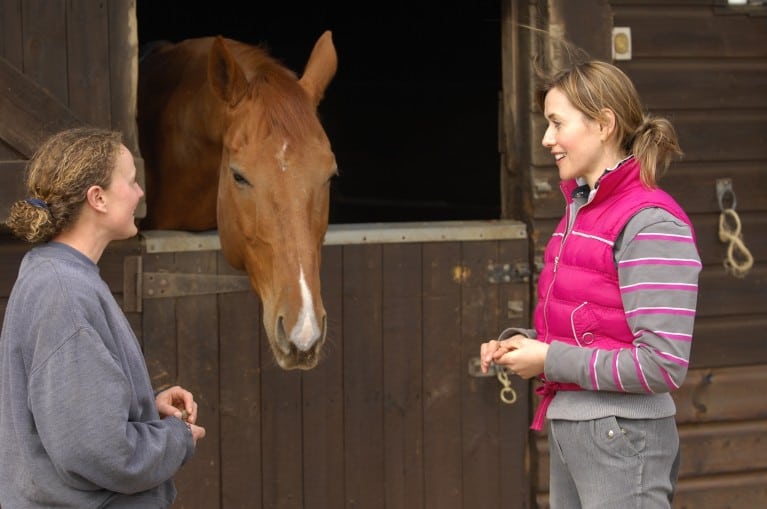By Daniel H. Grove, DVM

With all of the changes in the last year due to COVID-19, people’s lives have shifted. One benefit I see is that people have been forced into outdoor activities. This has led to an increase in horseback riding lessons and horse ownership. For all of those new horse owners out there, I thought a little insight into the costs of ownership and some items you should have on hand as a new horse owner.
The expensive part of owning a horse starts after the purchase. While there is often time a significant upfront investment into owning a horse, it really is, usually, just a drop in the bucket. Let us look at a list of things you should budget for in your monthly expenses with horse ownership.
1) Board. Food and board are a constant recurring expense. Expect to pay between $250 to over $500 per month
2) Training. If you are new to the hobby, you are going to need help learning the ropes. Expect to pay from $200 per month for a few lessons each week to well over $1000 per month for full training.
3) Farrier. You thought your kids’ shoes were expensive! (I know my mother was always complaining when my shoe size changed frequently) Horses are significantly more. Expect to pay $75-$500 every 6-8 weeks, depending upon your horse’s needs.
4) Veterinarian. I am going to lump deworming, vaccines, dentistry and all other types of veterinary care into this category. Expect to pay at a minimum $500 per year. This does not include any emergencies. To put a high number on the other end would be just a wild guess. It is highly dependent upon any conditions that require long term medication or surgeries. The good news is that insurance is available to help with those unexpected expenses.
Well, there is a sampling of the ongoing expenses you can expect with horse ownership. From a veterinarian’s point of view, here is a list of things you should have on hand
1) Halter and lead rope. Some might think this is obvious, but I have been on appointments where the owner did not have one and expected me to be able to deal with their horse that was not used to one.
2) Thermometer. A 10-second thermometer works great. Yes, it does need to be taken rectally.
3) Brushes, hoof pick, and other grooming items. You need to be able to help keep their coat and feet clean!
4) Fly spray. Whenever livestock is around, these pests follow!
5) A Fly mask. See number 4!
6) Fly sheet, blanket, cooler. These items might be optional, depending upon your locale
7) Your veterinarian’s phone number handy. You need to have this in case of an emergency. There is nothing more stressful than trying to find help when you really need it. Develop a relationship with your veterinarian prior to needing them for an emergency. There are many practices that do not even see emergencies for patients that they have not done routine work for in the past.
Well, hopefully I have given you some foresight into some of the expenses of owning a horse and some things to have on hand. These lists are very basic and definitely not all inclusive. Each horse home will have different requirements and levels of care they are able and/or willing to give to their horses. If you are going to jump into horse ownership, make sure you have at least open eye open prior to doing so.
It is a ton of fun, but you are dealing with a life and that is going to require some care. Good luck!
–Dan
Leave a Comment
All fields must be filled in to leave a message.